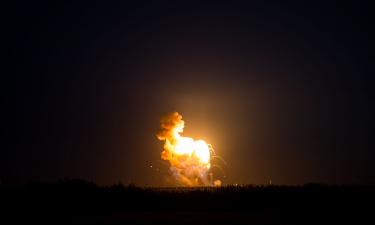John Keller: Yugoslavia and Afghanistan – How to Understand Media Spin
Propaganda has accompanied the majority of wars, as a precursor, during the war, and then as official history after the dust has settled and the conquerors (aka peacekeepers) move in. From Cato and Carthage down to Kuwaiti incubator babies, truth is indeed the first casualty. Arguably, the first defeat for the US military in the propaganda war was Vietnam. Being in the business of winning wars, the U.S. military concocted new ways to control the media, and has adapted new strategies for an increasingly connected world. The first test, and so far greatest victory for the New World Order spin-masters, was the Persian Gulf War. We saw the daily press briefing evolve into its current form as a carefully crafted propaganda session designed to give the media the good news about how well the war is going, and how the evil-doers are being punished. We saw the media assigned to specific press liaison officers, and trucked around from location to location under constant supervision. The press, as usual, ate it up. The military employs multiple strategies (and a PR firm or two) to shape public perception of the news by controlling the information released to the media. Jared Israel wrote an excellent article describing how these techniques are used in print (and sometimes on TV). Words are chosen carefully based on the emotional response they elicit. Certain facts are referred to again and again, while others are completely ignored. Other "facts" are manufactured out of whole cloth, usually with the tag "unsubstantiated" attached to allow weasel room later. All events are scripted into a master storyline designed to paint the conflict as one of good against evil. The side of righteous America is pitted against the twisted Taliban, or Milosevic, or Iraq, or Noriega, etc. Luckily (ha ha!), we have a very recent military engagement to compare to our current situation. The "humanitarian intervention" in Kosovo gives us something to compare the selective use of images, interviews, and facts to understand how the military and the media shape opinion. Let me restate: the government and military use the media to shape your opinion, and they are very good at it. The current bombing of Afghanistan and the 1999 bombing of Kosovo have a common element that exposes the hypocrisy and selective reporting endemic to any war effort. In both situations, military activity caused a massive refugee crisis, but the way the refugees are portrayed is vastly different between the two wars. Set aside whether the refugees were the result of ethnic cleansing or people fleeing a bombing zone. In Kosovo, close to two million refugees fled the province after the Nato bombing campaign started. The media broadcast the suffering of hundreds of thousands of refugees in the camps setup in neighboring Macedonia, Albania, and Montenegro. Countless interviews, non-stop coverage of refugee columns, and an appeal to send food and money to help the innocents driven out by war were the common themes across all networks. Endless coverage of the refugees on TV made the war for "humanitarian intervention" seem like a noble goal. Americans were told that Slobodan Milosevic was carrying out his "final solution" on Kosovo Albanians. Never mind that the refugees started leaving Kosovo AFTER the bombs started falling. During the bombing, the talking heads in the media chattered about how the evil Serbs had caused such misery. It was assumed that there was a deliberate program of ethnic cleansing. This was easy to do with CIA trained KLA fighters providing all the translation services, which invariably sounded like "They rounded us up and told us to leave. They took our papers." These reports were taken at face value. So, blame for the refugee crisis was placed squarely on the Serbs. There's plenty of evidence that the refugee crisis in Kosovo was the result of bombing, and scant little that it was an organized program. The Germans admitted as much when a top general came clean about how his spies faked "Operation Horseshoe". That and the fact that the body count on all sides has amounted to 3,200 instead of the 100,000 that James Rubin claimed. That's after the bombing, and includes military and civilian casualties on both sides. That's a forensics debate for another day, however. For this article, we can even assume (for the sake of all the Serb haters out there) that there was a program of ethnic cleansing. Compare the non-stop coverage of the Kosovo refugee crisis to the coverage of Afghan refugees. It's estimated that over 80,000 refugees have made it into Pakistan since the bombing started. The Red Cross states that over 2 million refugees are inside Afghanistan, mostly headed for friendly Pakistan, but many have been turned away. Two million Afghan refugees already live in Pakistani refugee camps. Where are the camera crews in Pakistani refugee camps? I had to dig to turn up this Reuters photo. You won't find the same kind of non-stop film coverage of an even larger refugee crisis in Pakistan than the Kosovo refugees. Where is the non-stop CNNBCBSMSNBCABC coverage, complete with clucking tongue commentary on the cruelty of war? When the families of the dead are interviewed, or give accounts of being bombed in their sleep, the Pentagon instructed media flacks are quick to chime in with "those numbers of civilian casualties can't be independently verified," a phrase seldom heard in the Kosovo conflict. Let's compare the government's handling of refugees in the Kosovo war with the current bombing of Afghanistan. When the refugees started leaving Kosovo, the U.S. government asked Macedonia, Montenegro, and (obviously) Albania to allow them across the border. In this war, the U.S. has aided a willing Pakistani regime in keeping the borders closed, and the refugees out. If too many refugees enter Pakistan, the U.S. will be unable to convince the world, and more importantly, the Pakistani government will be unable to convince their people, that this is a war of "targeted strikes against terrorists, and not a humanitarian catastrophe in the making. The war planners knew this and started dropping food packages early on. The Red Cross, Doctors Without Borders, and the UNHCR agree that the food is more for public relations than relieving hunger. We are scattering water drops on a raging inferno of starvation, while blocking the fire trucks. So, my question for the mass media is this. Where are the CNN camera crews, pressed in around the refugees? Where is Christiane Amanpore with her righteous indignation? Images are powerful things. Americans see people suffering on TV, and they don't like it. The military knows this. When it suited their purpose in Kosovo, they made sure to pack the airwaves with images of the displaced and hungry. "See. We're fighting to help save these people from oppression." When the story is obviously one of suffering CAUSED by our military, the story gets reported in print, if at all, and camera coverage is downplayed or outright spiked. No spin in the world can hide that fact that our military has caused a massive refugee crisis in Afghanistan. Will George W. Bush sit in the Hague kangaroo court with Slobodan Milosevic to answer charges of genocide and ethnic cleansing? Not very damn likely. As I finish proofreading this article, CNN manages to illustrate my point perfectly by calling for more "balance" in reporting. Stop and think for a moment if you heard a call to limit the amount of coverage given to civilian casualties in the Kosovo war? Not for a second, because the Nato spin masters could pin it on the Hitler de Jour, Mr. Milosevic. This war isn't going all that well. Americans are watching it while sitting in comfortable living rooms a few feet from the refrigerator. If they see enough images of Afghan refugees fleeing U.S. cluster bombs or digging for dead relatives in the remains of a hospital hit by a "Bunker Buster" bomb, they might realize that this war is not just. Don't be fooled by the media spin. Read for fact, verify facts, avoid the biased words, and draw your own conclusions.
John Keller
Subscribe to Pravda.Ru Telegram channel, Facebook, RSS!




